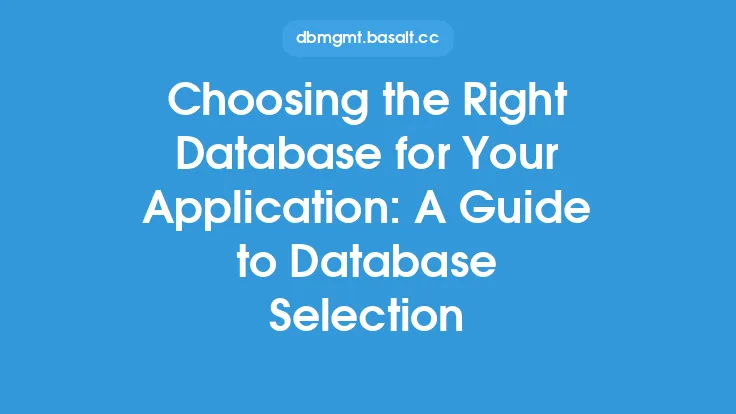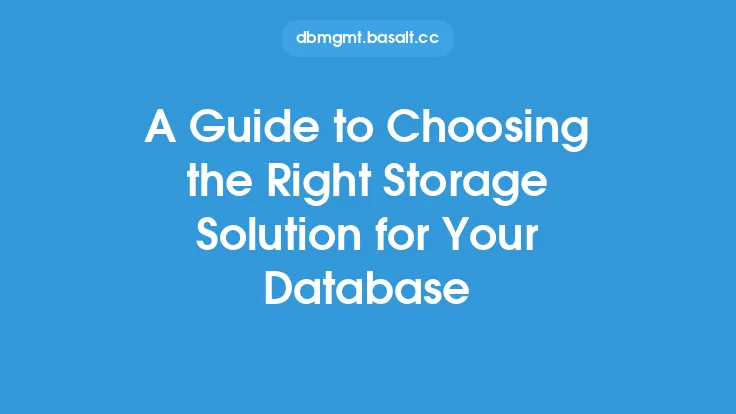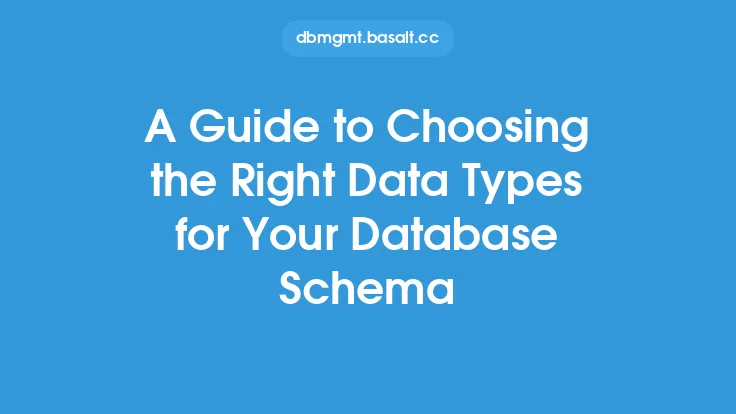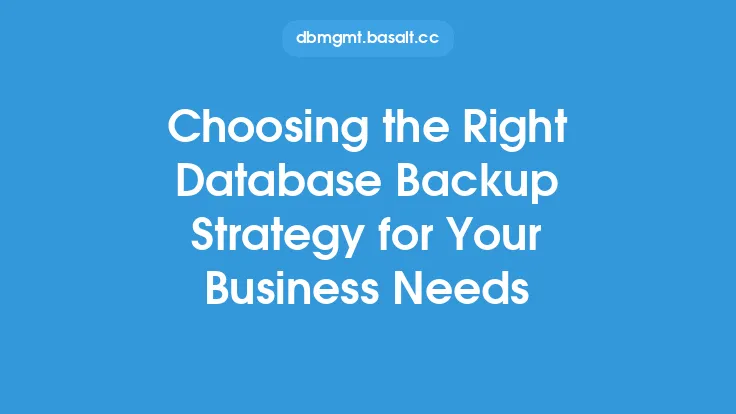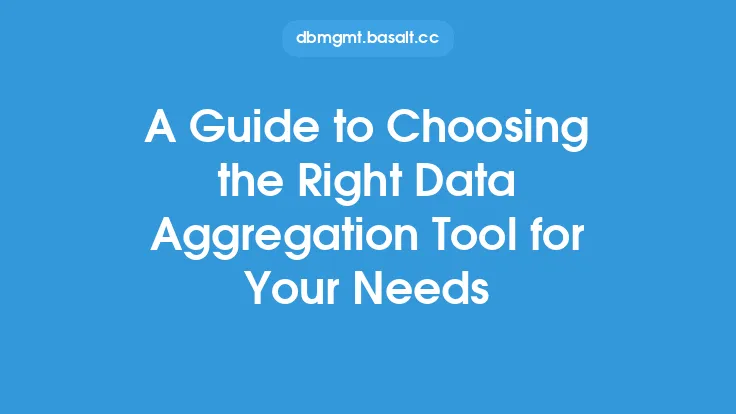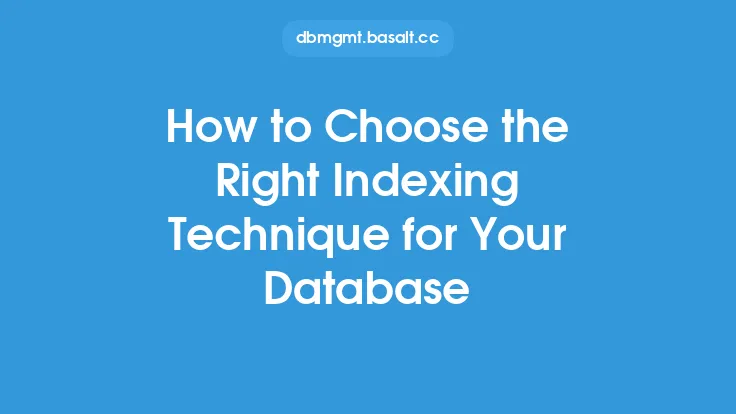When it comes to choosing the right backup storage for your database, there are several factors to consider. The primary goal of backup storage is to provide a secure and reliable way to store database backups, ensuring that data can be recovered in case of a failure or disaster. With the ever-increasing amount of data being generated, it's essential to select a backup storage solution that meets the specific needs of your database.
Understanding Database Backup Storage Requirements
To choose the right backup storage, you need to understand the requirements of your database. This includes the type and size of the database, the frequency of backups, and the retention period. Different databases have varying backup requirements, and it's crucial to consider these factors when selecting a backup storage solution. For example, a large enterprise database may require more storage capacity and faster backup and restore times compared to a small database.
Types of Backup Storage
There are several types of backup storage available, each with its own advantages and disadvantages. These include:
- Disk-based backup storage: This type of storage uses hard disk drives (HDDs) or solid-state drives (SSDs) to store backups. Disk-based backup storage is fast and reliable, making it suitable for large databases with high backup frequencies.
- Tape-based backup storage: This type of storage uses magnetic tape to store backups. Tape-based backup storage is often used for long-term data retention and archiving, as it's more cost-effective than disk-based storage.
- Cloud-based backup storage: This type of storage uses cloud services to store backups. Cloud-based backup storage provides scalability, flexibility, and offsite storage, making it suitable for databases with varying backup requirements.
- Hybrid backup storage: This type of storage combines different types of storage, such as disk and tape, or disk and cloud. Hybrid backup storage provides a balance between performance, capacity, and cost.
Key Considerations for Choosing Backup Storage
When choosing backup storage, there are several key considerations to keep in mind. These include:
- Capacity: The backup storage solution should have sufficient capacity to store all database backups, including full, incremental, and differential backups.
- Performance: The backup storage solution should provide fast backup and restore times to minimize downtime and ensure business continuity.
- Data protection: The backup storage solution should provide robust data protection features, such as encryption, access controls, and redundancy, to ensure data integrity and security.
- Scalability: The backup storage solution should be scalable to accommodate growing database sizes and increasing backup frequencies.
- Cost: The backup storage solution should be cost-effective, considering factors such as storage costs, maintenance costs, and personnel costs.
Evaluating Backup Storage Solutions
To evaluate backup storage solutions, you should consider the following factors:
- Vendor support: Look for vendors that provide reliable support, including documentation, training, and technical assistance.
- Compatibility: Ensure the backup storage solution is compatible with your database management system and operating system.
- Certifications and compliance: Verify the backup storage solution meets relevant certifications and compliance requirements, such as GDPR, HIPAA, or PCI-DSS.
- Customer reviews and testimonials: Research customer reviews and testimonials to gauge the reliability and performance of the backup storage solution.
Implementing and Managing Backup Storage
Once you've chosen a backup storage solution, it's essential to implement and manage it effectively. This includes:
- Configuring backup jobs: Configure backup jobs to run automatically, ensuring that backups are created regularly and consistently.
- Monitoring backup storage: Monitor backup storage capacity, performance, and data protection to ensure the solution is functioning correctly.
- Testing backups: Regularly test backups to ensure data can be recovered correctly and efficiently.
- Maintaining backup storage: Perform regular maintenance tasks, such as updating software, replacing hardware, and performing data integrity checks, to ensure the backup storage solution remains reliable and efficient.
Conclusion
Choosing the right backup storage for your database is a critical decision that requires careful consideration of several factors. By understanding your database backup requirements, evaluating different types of backup storage, and considering key factors such as capacity, performance, and data protection, you can select a backup storage solution that meets your needs. Effective implementation and management of the backup storage solution are also crucial to ensure data integrity, security, and recoverability. By following these guidelines, you can ensure your database is protected and available, even in the event of a disaster or failure.
